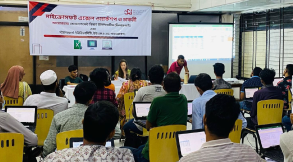I study how bias in agricultural technological change affects labor market opportunities and fertility in a modern developing country context. Exploiting plausibly exogenous variation in the adoption of genetically engineered soy across municipalities in Brazil, I show that these technologies reduced female earnings and employment in agriculture, without leading to a reallocation of female labor into other sectors. Further, this technology adoption increased fertility due to increases in overall household earnings and substitution effects driven by the reduction in female earnings and employment. These results suggest that, contrary to historical experience, technological progress in modern developing countries may not improve female labor market opportunities or contribute to fertility decline unless substitution effects are negative and sufficiently large.
STEG Working Paper Series
• Research Theme 3: Agricultural Productivity and Sectoral Gaps,
Cross-Cutting Issue 1: Gender
Agricultural Technological Change, Female Earnings, and Fertility: Evidence from Brazil
Vivek Moorthy

Related content




































































































